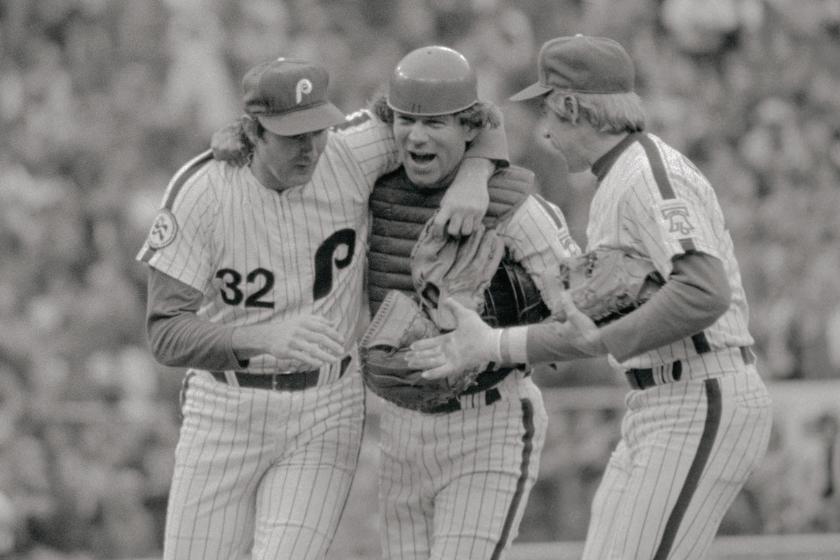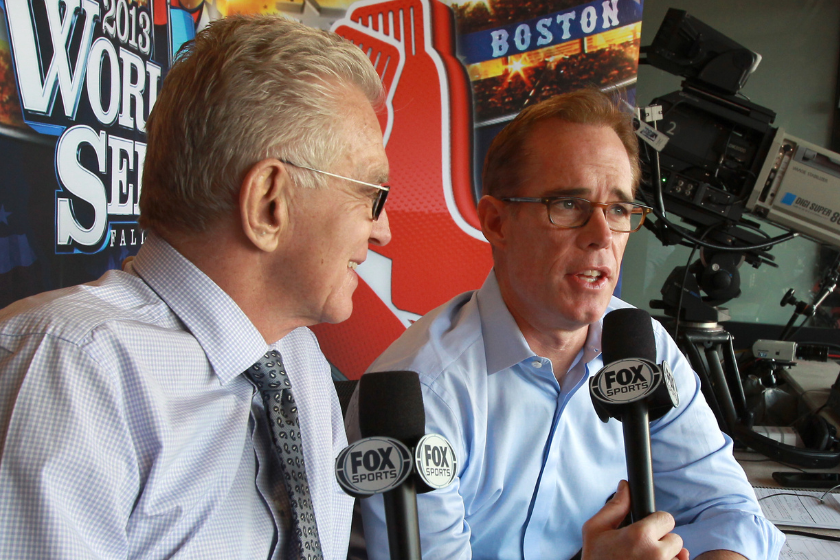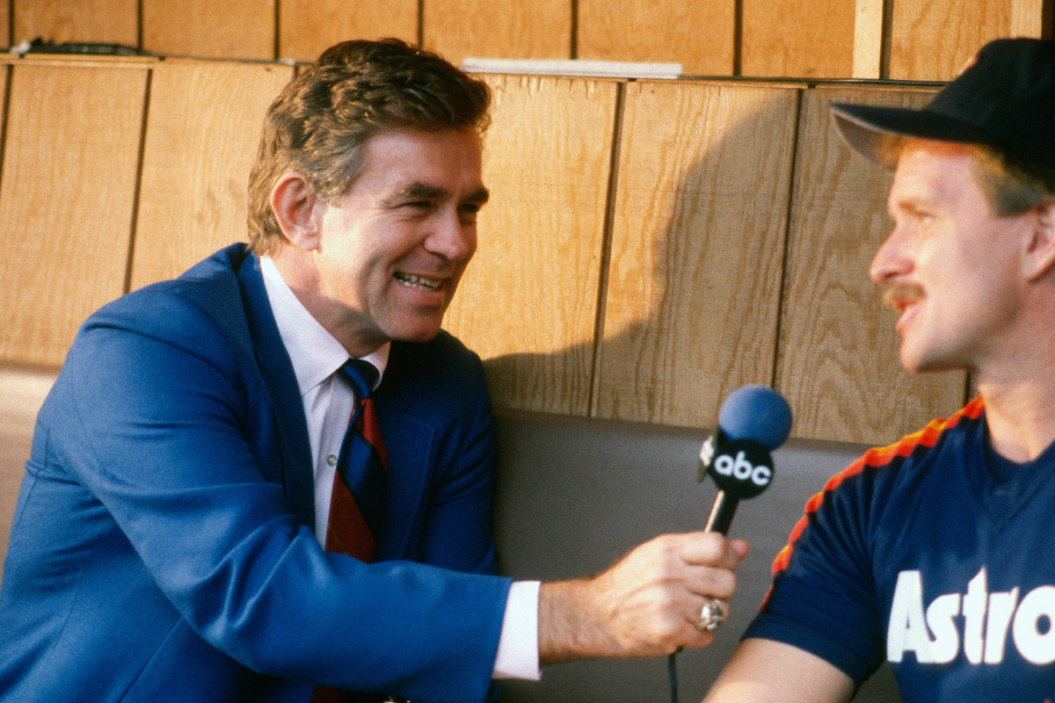Being a baseball broadcaster is no walk in the park. Unlike the other major American sports, the game of baseball is played without a clock, much to the chagrin of MLB Commissioner Rob Manfred. This unique quality has forced those calling the game to fill the moments of inaction with sound. A good MLB broadcaster can do that with the grace and flair of a Vegas magician. But it takes something truly special to do what the late broadcaster Tim McCarver, who died at age 81 from heart failure, was able to do with just a microphone.
Videos by FanBuzz
Tim McCarver: Catcher, Commentator, Baseball Legend

Photo from the Bettman Archives via Getty Images
Having a successful playing career as a Major League Baseball catcher is partially dependent upon the pitchers who rely on you. McCarver was lucky enough to have the honor of being Bob Gibson's battery mate while in St. Louis, even working as Gibson's backstop during his legendary 1968 season. McCarver would win the first of his two World Series titles with the Cardinals, as they beat the New York Yankees in 1964.
Later on in his career, the two-time All-Star catcher would also lend his talents as the catcher for four-time Cy Young winner Steve Carlton during two of his award-winning seasons in Philadelphia. To Carlton, McCarver wasn't just a teammate — he was his personal catcher, his trusted backstop.
But as every good catcher knows, whether you play for the San Francisco Giants or the Atlanta Braves, your knees will one day give out and your bat will run out of home runs. So McCarver hung up his chest protector and headed to the broadcast booth. Originally getting his start calling games for the Phillies, he eventually moved on to the New York Mets. Along the way, the Hall of Fame broadcaster honed his craft, eventually calling 24 World Series for ABC, CBS and Fox — the most of any broadcaster. McCarver also lent his talents to NBC for its MLB broadcasts.
Some believed that the former catcher for the St. Louis Cardinals, Philadelphia Phillies, Montreal Expos and Boston Red Sox tended to overanalyze every aspect of the game or be too flippant with athletes such as Deion Sanders. Former Sports Illustrated writer Chad Norman once said, "When you ask him the time, [he] will tell you how a watch works." While his playing skills weren't enough to get him into the National Baseball Hall of Fame, his broadcasting career would — especially in the later years of his career when he teamed up with Joe Buck.

Photo by John Blanding/The Boston Globe via Getty Images
"When they asked me if there was any person I wanted to let know before the (Ford C. Frick Award) announcement became public, I didn't hesitate to say Joe Buck," the three-time Sports Emmy Award winner said of his Fox broadcast partner. "Joe Buck was the only person that was called, and speaking with him helped make (that) day very special."
It's easy to define a ballplayers' career by their RBIs, All-Star games or MVP awards. But for those in the booth, the task is more difficult. For McCarver, his job was to illuminate the intricacies of the game in the clearest terms possible. It's not an easy job. Imagine having to explain a dime package during a Super Bowl, or having to treat a novice listener from Memphis with the same degree of respect as a seasoned veteran of the Yankee Stadium bleachers. McCarver, like the renowned Vin Scully before him, gave baseball fans everything they could have wanted and more in each and every broadcast.
Baseball is a game defined by legends, and Tim McCarver fits the bill.
